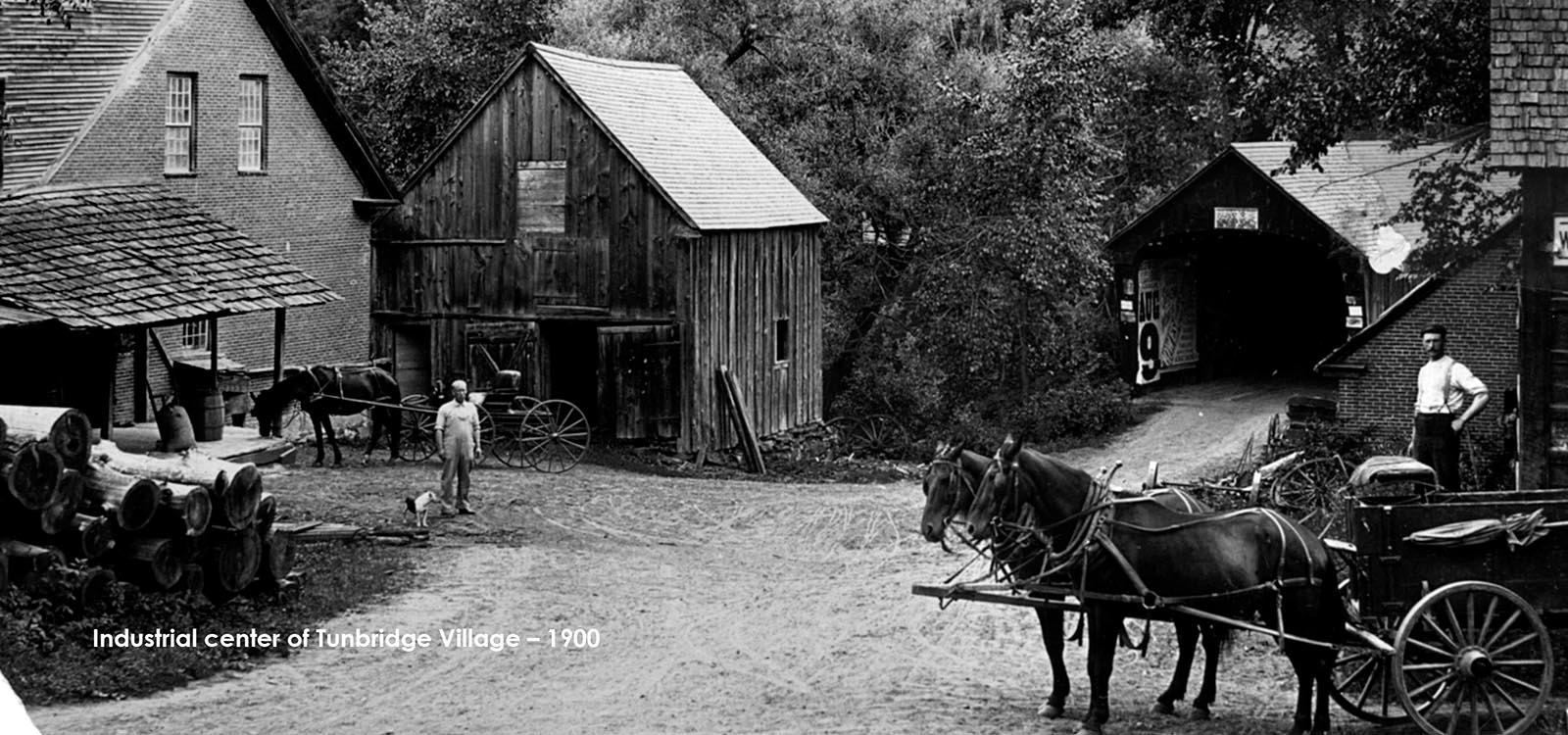by Euclid Farnham
Tunbridge Historical Society president
Tunbridge was granted by Benning Wentworth of New Hampshire in 1761. The town was named for the Viscount of Tunbridge who lived back in England. The first settlers in town were Moses and Susannah Ordway. They were the parents of 22 children, eighteen of whom lived to adulthood. In October of 1780, during the Revolution, a British led military force of some three hundred Mohawks from Canada, attacked Tunbridge. Four men were killed and some thirty males were taken prisoner. It was not until the end of the Revolution that the town was safe enough for settlement.
The census of 1791 found nine hundred people living in Tunbridge. The First Branch of the White River provided numerous sites along the river for businesses to locate. This included a woolen mill, a mill that produced thousands of wooden implement handles, several grist mills, an iron foundry and a number of sawmills. Following the outbreak of the Civil War some 180 men became soldiers. Thirty seven were either killed in battle or died of disease. For much of the 1800s, sheep raising was then a major source of income for Tunbridge farmers. We will never know how many thousand sheep grazed on Tunbridge hillsides.
From the 1890s until 1960, most Tunbridge farms became dairy farms. At one point the town had some 200 dairy farms. Today, most Tunbridge residents either work out of town or are retired.
The above photograph is from the society’s archive and is used with permission.

